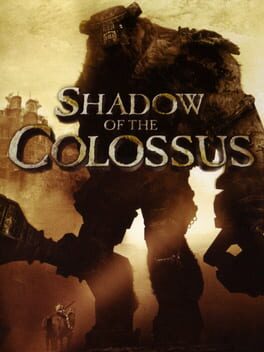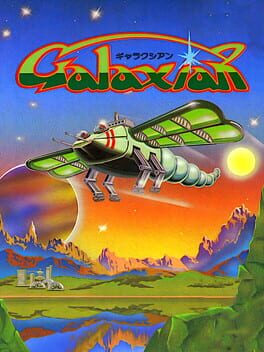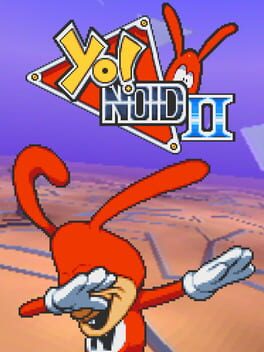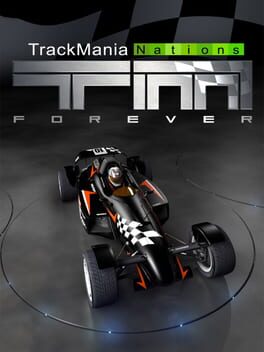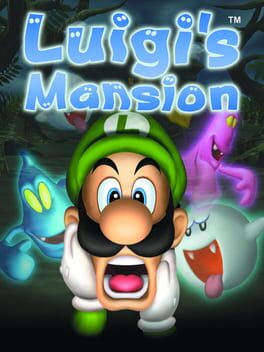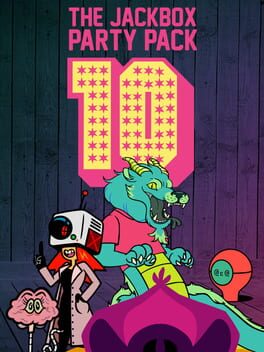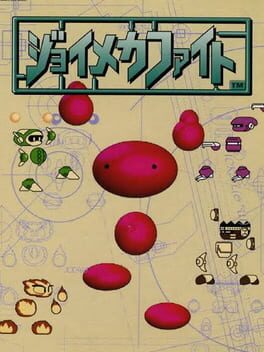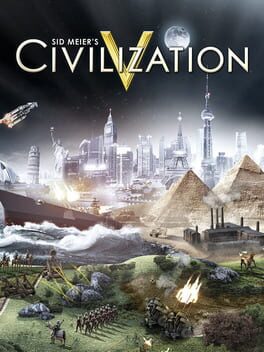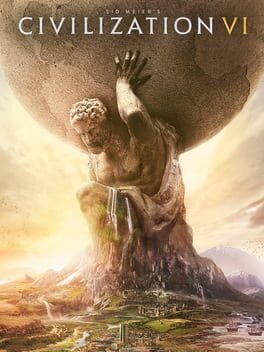Chariot_Rider
Shadow of the Colossus still displays Ueda's signature approach to minimalist and subtractive design, and it benefits greatly from that still. There’s a lot I still love about Shadow of the Colossus. The character dialogue is excellent at painting a picture of this haunting world and the characters within it, suggesting character motivations and themes to chew on.
I love the narrative setup of Shadow of the Colossus. A man, Wander, has come to a forbidden place bearing the body of a seemingly dead woman. He wants to heal her, and in his quest he gets the direction of a mysterious entity who tells him to slay the colossi that roam the land. Immediately this setup suggests a lot of really compelling themes. There is the contrast between life and death, or life that comes about through death. If Ico is a game about the strengths of human bonds, SotC asks what people will do to restore bonds they have lost, and the price that can come with that. And the game pays all of this off really well with its conclusion. I won’t spoil its ending, but it brings these ideas and themes which have been simmering over the course of the game to a close.
In between it’s exceptional start and end, is a middle which is good, but feels like a lot. Maybe it’s a bit absurd to complain about the size of an adventure in a game literally about confronting foes of gigantic proportions. I certainly felt the size of the adventure! Where Ico was very compact, very tight, SotC has you fight 16 of these giants, and the structure doesn’t really change in between each one. The voice tells you to kill a beast, you ride across the land to find its lair, you kill it, and then you repeat. This is the structure of the game, and it doesn’t deviate from this path for a single moment. I found that this made the pace drag a bit. Where Ico would have you bounce between combat, exploration, platforming, and puzzles very regularly, SotC has riding to the fight, maybe hunting some lizards or exploring parts of the environment, and then doing a fight. I just found it a bit more tiring, which again, maybe that’s the point. Still, maybe if the game was slightly shorter I’d be more inclined to replay it.
The world itself is still lovely and haunting. The Forgotten Lands are gorgeous and full of nature, but there is a history etched into the rocks. You can only observe fragments of old structures, with very little ability to comprehend their original purpose and meaning. The land can’t be understood, but its atmosphere is felt.
The battles are also memorable. Each is unique, with their own personality, and that lends itself to a very unique form of puzzle combat where defeating a Colossi isn’t about matching their raw strength, but in outsmarting and outlasting them.
There is a lot to love about Shadow of the Colossus. Its narrative setup injects this adventure with such potent and complex themes that leave players with few simple answers. To play Shadow of the Colossus is to accept that it won’t be an easy experience, not just with the gameplay but in the questions the game forces you to answer. I have immense respect for it, even if the compact beauty of Ico is just slightly more to my own personal taste, but honestly, after writing this I could maybe convince myself that Shadow of the Colossus is the better game. Maybe.
I love the narrative setup of Shadow of the Colossus. A man, Wander, has come to a forbidden place bearing the body of a seemingly dead woman. He wants to heal her, and in his quest he gets the direction of a mysterious entity who tells him to slay the colossi that roam the land. Immediately this setup suggests a lot of really compelling themes. There is the contrast between life and death, or life that comes about through death. If Ico is a game about the strengths of human bonds, SotC asks what people will do to restore bonds they have lost, and the price that can come with that. And the game pays all of this off really well with its conclusion. I won’t spoil its ending, but it brings these ideas and themes which have been simmering over the course of the game to a close.
In between it’s exceptional start and end, is a middle which is good, but feels like a lot. Maybe it’s a bit absurd to complain about the size of an adventure in a game literally about confronting foes of gigantic proportions. I certainly felt the size of the adventure! Where Ico was very compact, very tight, SotC has you fight 16 of these giants, and the structure doesn’t really change in between each one. The voice tells you to kill a beast, you ride across the land to find its lair, you kill it, and then you repeat. This is the structure of the game, and it doesn’t deviate from this path for a single moment. I found that this made the pace drag a bit. Where Ico would have you bounce between combat, exploration, platforming, and puzzles very regularly, SotC has riding to the fight, maybe hunting some lizards or exploring parts of the environment, and then doing a fight. I just found it a bit more tiring, which again, maybe that’s the point. Still, maybe if the game was slightly shorter I’d be more inclined to replay it.
The world itself is still lovely and haunting. The Forgotten Lands are gorgeous and full of nature, but there is a history etched into the rocks. You can only observe fragments of old structures, with very little ability to comprehend their original purpose and meaning. The land can’t be understood, but its atmosphere is felt.
The battles are also memorable. Each is unique, with their own personality, and that lends itself to a very unique form of puzzle combat where defeating a Colossi isn’t about matching their raw strength, but in outsmarting and outlasting them.
There is a lot to love about Shadow of the Colossus. Its narrative setup injects this adventure with such potent and complex themes that leave players with few simple answers. To play Shadow of the Colossus is to accept that it won’t be an easy experience, not just with the gameplay but in the questions the game forces you to answer. I have immense respect for it, even if the compact beauty of Ico is just slightly more to my own personal taste, but honestly, after writing this I could maybe convince myself that Shadow of the Colossus is the better game. Maybe.
2024
2024
This is the best cooking game since Steven's Sausage Roll.
Seriously though, Arctic Eggs is great. The cooking gameplay is incredibly intuitive, but tricky to master. It's simply incredibly satisfying.
Arctic Eggs does a great job with its writing. Each person is a vignette, a small snapshot into this strange world. Some horrify, some make me laugh, but everyone has a place. The game hints at broader implications without spelling out all of the details, and the end result is an excellent bit of science fiction.
Fry some eggs.
Seriously though, Arctic Eggs is great. The cooking gameplay is incredibly intuitive, but tricky to master. It's simply incredibly satisfying.
Arctic Eggs does a great job with its writing. Each person is a vignette, a small snapshot into this strange world. Some horrify, some make me laugh, but everyone has a place. The game hints at broader implications without spelling out all of the details, and the end result is an excellent bit of science fiction.
Fry some eggs.
2004
Yume Nikki is an all time classic. I first played it in college, and frankly, I wasn't quite sure if I would enjoy it. I was intrigued by the premise, but I thought that perhaps I might get bored at just walking around. Instead, I found myself completely encapsulated, exploring the world for hours.
The game's premise is so elegant, but like everything in this game, leaves room for the player to consider and ponder. Madotsuki is alone in her room, and for whatever reason, refuses to go outside, instead choosing to dream. There's a tragic aspect of this setup that looms over the whole game. You aren't merely exploring the dreams of a random person. Rather, you are reading the dreams of someone specific, and probably not someone who is in the best state of mind. Perhaps that is me reading into things and projecting my own thoughts and feelings onto the game, but that is what Yume Nikki is all about. Its a world filled with visual detail, but the specifics of their meaning is hazy at best, and thus there are gaps to be filled by the observer in a Roland Barthian sense. Everyone fills those gaps in their own way, to the point that their own reading of the game to an extent becomes a reflection of their own self. While this is true of all art, it's especially true when so many of the details are left up to interpretation.
The game's dream worlds are fascinating. The vast majority make me feel lonely, even when they have inhabitants. There's always a certain distance felt between Madotsuki and the strange beings of her dreams, at least in most cases. The worlds themselves are ethereal and bizarre, their dreamlike quality aided by the short music loops that become memetically drilled into your head. Part of the joy of exploration is not knowing what else is out there. There's snow, buildings, abstract voids, and so much more, and I wanted to see it all.
While Yume Nikki could be said to be a game "just" about walking, that would imply that the act of walking is uninteresting. Rather, Yume Nikki is a game about observing, and thinking, acts which aren't mechanical in nature, but take place in the player's head. I loved thinking about the things I was seeing, marveling in their strangeness, vibing to the aura, and experiencing things. The gameplay of Yume Nikki truly lies in the thoughts constructed in your own head.
I have never been particularly fond of Yume Nikki's ending. In a sense, the foreboding atmosphere implied by the game's premise is heightened in a tragic and sad climax. Its an incredibly somber note to end on, and in a sense does ring true to the experience of stewing in negative and depressive thoughts. But, it has always felt sour to me. Its an aspect of this game that, while I'm not huge on it in its original context, has been commented upon by other games responding to Yume Nikki. This scene, for better or worse, became a lasting part of the game's legacy, and in a sense is recontextualized by the media around it. In particular, Yume 2kki and OMORI both have their own twists on this ending that I actually find fascinating, and worthy of their own exploration, that work in the context of those games.
All in all, Yume Nikki is a game that is worth as much time as you want to give to it. If you play it for 20 minutes, or get obsessed and play it for hours on end (like I did), you will find something to appreciate about it. For the time it released, it's incredibly unique. Not much else was like it at the time, and it helped forge a new possibility for what games could be. Its a game that is free and easy to access, that runs on almost any computer made in the past 20 years. There's no reason not to play Yume Nikki. Frankly, I could keep talking as this is only a snippet of my thoughts on the game, but this should suffice for now. Enjoy your dreams!
The game's premise is so elegant, but like everything in this game, leaves room for the player to consider and ponder. Madotsuki is alone in her room, and for whatever reason, refuses to go outside, instead choosing to dream. There's a tragic aspect of this setup that looms over the whole game. You aren't merely exploring the dreams of a random person. Rather, you are reading the dreams of someone specific, and probably not someone who is in the best state of mind. Perhaps that is me reading into things and projecting my own thoughts and feelings onto the game, but that is what Yume Nikki is all about. Its a world filled with visual detail, but the specifics of their meaning is hazy at best, and thus there are gaps to be filled by the observer in a Roland Barthian sense. Everyone fills those gaps in their own way, to the point that their own reading of the game to an extent becomes a reflection of their own self. While this is true of all art, it's especially true when so many of the details are left up to interpretation.
The game's dream worlds are fascinating. The vast majority make me feel lonely, even when they have inhabitants. There's always a certain distance felt between Madotsuki and the strange beings of her dreams, at least in most cases. The worlds themselves are ethereal and bizarre, their dreamlike quality aided by the short music loops that become memetically drilled into your head. Part of the joy of exploration is not knowing what else is out there. There's snow, buildings, abstract voids, and so much more, and I wanted to see it all.
While Yume Nikki could be said to be a game "just" about walking, that would imply that the act of walking is uninteresting. Rather, Yume Nikki is a game about observing, and thinking, acts which aren't mechanical in nature, but take place in the player's head. I loved thinking about the things I was seeing, marveling in their strangeness, vibing to the aura, and experiencing things. The gameplay of Yume Nikki truly lies in the thoughts constructed in your own head.
I have never been particularly fond of Yume Nikki's ending. In a sense, the foreboding atmosphere implied by the game's premise is heightened in a tragic and sad climax. Its an incredibly somber note to end on, and in a sense does ring true to the experience of stewing in negative and depressive thoughts. But, it has always felt sour to me. Its an aspect of this game that, while I'm not huge on it in its original context, has been commented upon by other games responding to Yume Nikki. This scene, for better or worse, became a lasting part of the game's legacy, and in a sense is recontextualized by the media around it. In particular, Yume 2kki and OMORI both have their own twists on this ending that I actually find fascinating, and worthy of their own exploration, that work in the context of those games.
All in all, Yume Nikki is a game that is worth as much time as you want to give to it. If you play it for 20 minutes, or get obsessed and play it for hours on end (like I did), you will find something to appreciate about it. For the time it released, it's incredibly unique. Not much else was like it at the time, and it helped forge a new possibility for what games could be. Its a game that is free and easy to access, that runs on almost any computer made in the past 20 years. There's no reason not to play Yume Nikki. Frankly, I could keep talking as this is only a snippet of my thoughts on the game, but this should suffice for now. Enjoy your dreams!
1979
Galaxian is a simple game that does what it sets out to do decently well, but its hard to play after playing some games that were influenced by it. The limitation of only having one bullet is neat and does make your shots feel like they matter more. In the heat of gameplay when the bugs are raining down bullets and you are dodging the game actually feels incredibly fun. Having the flagships be worth more points when they are alone and charging is a nice touch that encourages precise, aimed shots instead of just spamming bullets. One of the downsides to this game is that the unit formations don't change a ton from round to round, so the rounds can feel a bit samey over time, which is one of the big improvements Galaga made over this. Presentationally Galaxian is nice, with good sound effects, great explosions, and iconic ship designs. Its a bit antiquated and definitely not as good as Galaga, but its worth checking out, especially because it is included in many of the Namco collections, so there is no reason not to play it
2017
As a bit of Dominos humor, it's alright. It's fun seeing the Noid and other Dominos characters have a wacky adventure. As a platformer, I think Yo! Noid 2 is only ok. The movement is a bit more stiff than I'd like, but the real issue is with the level design, which doesn't do a great job at directing players to the ideal path. There were many times when I just had no idea which direction I was supposed to be going, and I think the level design is a big part of that. At the very least, Yo! Noid II is very forgiving with its checkpoints, so even if the game is a bit obtuse, it never becomes tedious. It's a fun little fan project, and I think its worth running through if you want to see the game's humor, or want to see a bite sized platformer.
Trackmania Nations Forever is an all time greatest racing game for me. It's controls are devilishly simple, but that hides a depth which is immense. It's a series all about making tricky jumps, and rounding corners in just the right way that you maintain your speed. Keeping speed in Trackmania is exhilarating, and it feels faster than many other racing games, even if it isn't on paper.
A lot of what I love about this game comes from the custom content. Trackmania players have made all kinds of absurd and tricky courses, enough that there's functionally no end to the racing. In a sense, the track is your true enemy. Sure other people are racing with you, but it's easy to forget about them as you just try to finish a tricky track.
Racing in Trackmania has tricks and all kinds of wild jumps that are exhilarating. The track design has an anarchic, wild energy that few other racing games possess. Plus, the game is entirely free, unlike its newer counterpart which locks the custom content (the best content in the series imo) behind a subscription service. Not that I begrudge it for doing so, it must make money somehow, but the older iteration has that content for free. It's a must play for anyone with a computer that can run this very easy to run game.
A lot of what I love about this game comes from the custom content. Trackmania players have made all kinds of absurd and tricky courses, enough that there's functionally no end to the racing. In a sense, the track is your true enemy. Sure other people are racing with you, but it's easy to forget about them as you just try to finish a tricky track.
Racing in Trackmania has tricks and all kinds of wild jumps that are exhilarating. The track design has an anarchic, wild energy that few other racing games possess. Plus, the game is entirely free, unlike its newer counterpart which locks the custom content (the best content in the series imo) behind a subscription service. Not that I begrudge it for doing so, it must make money somehow, but the older iteration has that content for free. It's a must play for anyone with a computer that can run this very easy to run game.
1977
This is Tron but not as snazzy. Honestly, the domino aesthetic is cute and watching everything fall over at the end is fun. The clack of the dominos is satisfying. However, the AI just isn't very good and beating the AI is quite trivial. Perhaps this is more engaging against a real human. But, for being such an old game, it's neat, but not an arcade game I feel any draw to return to.
2001
I went into Luigi's Mansion expecting to enjoy it, but ultimately I found the experience to be tedious and dull. Fundimentally, Luigi's Mansion is doing the same thing over and over again with very little to shake things up. Ultimately, while ghost sucking had the potential to be enjoyable, it's not especially deep and doesn't drastically change much from ghost to ghost. Sucking up one ghost will feel the same as sucking up another ghost, so when the game stretches that one activity across a whole game. At points the game is comically lengthened, such as when you clear a room in the attic, only to receive a key to the basement, only for that room to give you a key to another attic room. You just have to walk through the cleared out mansion several times to continue, and it's just a dull matter of holding down the analogue stick. And the boos add to the tedium even more! Not only do you have to run through the house again to get all 50, but when you start capturing them they will just run into the halls, and in some rooms this dance can be extended for absurd amounts of time. It's not fun, or interesting to catch boos, its just an exercise in tedium. Sure, the presentation is decent, and it has its charming moments, but ultimately Luigi's Mansion is too repetitive and tedious for me to want to revisit it.
Jackbox 10 is a good time. Like many of the packs there are some pretty good games and others that aren't and I'll give my general thoughts on each below
TeeKO 2
Its like TeeKO 1 but with a few slight changes, which is to say its very good. The drawings and shirts are hilarious and its always fun to see what people cook up
FixyText
My least favorite from the pack. The pacing on this is slow and you will spend a lot of time doing nothing. Even when you are typing, having three people type one prompt doesn't lead to comedy because the final result has no focus. This game feels like it drags the most.
Hypnotorious
This is an interesting social deduction game of trying to find those similar to you while giving hints that let others know what you are. It is a bit confusing at first, but it is interesting once you figure things out
Timejinx
An extremely clever trivia game. The idea of guessing dates and scoring points based on how far you are from the right date (with golf scoring) is brilliant and makes this a great trivia game with a unique twist.
Dodo Re Mi
A cooperative rhythm game. This is an interesting experiment, though the controls for keyboard and mouse users are a bit clunky. The different instruments offer an interesting choice for people on the outset and is an interesting way of changing difficulty.
Overall, I think Jackbox 10 is a fairly solid time. There is only one game I outright dislike, and the others, especially TeeKO 2 can be extremely fun. That being said, I'm not sure the collective package reaches above some of the other Jackbox games I have played
TeeKO 2
Its like TeeKO 1 but with a few slight changes, which is to say its very good. The drawings and shirts are hilarious and its always fun to see what people cook up
FixyText
My least favorite from the pack. The pacing on this is slow and you will spend a lot of time doing nothing. Even when you are typing, having three people type one prompt doesn't lead to comedy because the final result has no focus. This game feels like it drags the most.
Hypnotorious
This is an interesting social deduction game of trying to find those similar to you while giving hints that let others know what you are. It is a bit confusing at first, but it is interesting once you figure things out
Timejinx
An extremely clever trivia game. The idea of guessing dates and scoring points based on how far you are from the right date (with golf scoring) is brilliant and makes this a great trivia game with a unique twist.
Dodo Re Mi
A cooperative rhythm game. This is an interesting experiment, though the controls for keyboard and mouse users are a bit clunky. The different instruments offer an interesting choice for people on the outset and is an interesting way of changing difficulty.
Overall, I think Jackbox 10 is a fairly solid time. There is only one game I outright dislike, and the others, especially TeeKO 2 can be extremely fun. That being said, I'm not sure the collective package reaches above some of the other Jackbox games I have played
1993
Joy Mech Fight is a cute time. I haven’t played a ton of fighting games, but this was mostly enjoyable. The controls are simple, but I definitely grew to understand them a lot more by the end of the game, which is a sign of depth. As you play through the game, you begin to pick up on the differences between all 8 of your fighters and where they excel and where they don’t, so sometimes you can beat a tricky fight by finding a better robot for the job, almost like mega man. One thing I’m not huge on is the wide difficulty range from the start to the end. This game starts off very easy, but by the end of the game characters became incredibly difficult and I had to attempt them multiple times to progress which really dragged down the pace of an otherwise brisk experience.
Joy Mech Fight might be one of the best looking Famicom games. The backgrounds especially are gorgeous displays full of life. Fighting on the moon with the earth in the background and 3 parallax layers of craters, it’s a great spectacle to cap off a game of other beautiful arenas. The character design is also quite interesting. Without arms, the mechs can have very fluid motion, and their cartoony presentation is fun.
I apologize if this review isn’t up to my usual standards. I’m up quite late writing jt because I want the game fresh on my mind when I write this so I’m writing this piece dead tired.
Joy Mech Fight might be one of the best looking Famicom games. The backgrounds especially are gorgeous displays full of life. Fighting on the moon with the earth in the background and 3 parallax layers of craters, it’s a great spectacle to cap off a game of other beautiful arenas. The character design is also quite interesting. Without arms, the mechs can have very fluid motion, and their cartoony presentation is fun.
I apologize if this review isn’t up to my usual standards. I’m up quite late writing jt because I want the game fresh on my mind when I write this so I’m writing this piece dead tired.
2020
This is a subpar party game. For text based games your character count is puny and often got in the way of jokes, even for sentences of reasonable length. Drawing stuff with friends is still fun, but that is true for all party games with drawing components so that doesn't set this apart. Gartic Phone can still be fun, but there are much better options for party games.
The disclaimer in my bio is especially important with this review. There are so many Civs and so much about this game hasn't been experienced by me. So, I recently had an opportunity to play Civ V for the first time last month with a group of friends. It was always a very chill time, and while it was indeed a strategy game where everyone was trying to win, it had a decent amount of down time that could be filled with discussion and hanging out. In that regard, Civ V is a great experience.
Civ V is also a great story generator. The grand scope of the game, and the variety of things that can happen and approaches one can take can lead to a lot of stories. One of my friends discovered a tile that was surrounded by three gems and made a rush to claim it as his own, only to end up in conflict with the AI who declared war he was not prepared for. Meanwhile on another continent my neighbor was rushing through the tech tree and I decided to build up a military to fight his defenseless cities. These stories overlapped and were quite fun to watch unfold, and Civ V is really good with that.
As a strategy game, there are definitely decisions to be made, but in a sense there are almost so many options that I ended up just kind of going through the motions and grabbing whatever upgrades sounded neat. The decisions were strategic, but Civ V isn't quite as strategy oriented as you might expect from the variety of choices. If somebody is doing something to win across the map, you don't have much control over that in the early game, and even from a diplomacy perspective it can be hard to convince people to assist your own schemes. As a result, the game can kind of just wash over you and it can be incredibly entertaining, but perhaps not always the most fair strategy experience. Then again, who would want a properly fair strategy experience anyway from Civ, since it is almost more compelling as a collaborative story generator.
The major thing that drags Civ V down for me are the technical issues. Me and my friends experienced many technical issues across our game, to the point that it had to be abandoned because they didn't want to diagnose and fix some arcane issue that should have been fixed ages ago. As a result, the story of our game didn't come to a proper end and that's just a sad note to end things on. It is inexcusable that the multiplayer should be as nonfunctional as it was during our session.
Overall, Civ V is a great time with friends, assuming the game actually works.
Civ V is also a great story generator. The grand scope of the game, and the variety of things that can happen and approaches one can take can lead to a lot of stories. One of my friends discovered a tile that was surrounded by three gems and made a rush to claim it as his own, only to end up in conflict with the AI who declared war he was not prepared for. Meanwhile on another continent my neighbor was rushing through the tech tree and I decided to build up a military to fight his defenseless cities. These stories overlapped and were quite fun to watch unfold, and Civ V is really good with that.
As a strategy game, there are definitely decisions to be made, but in a sense there are almost so many options that I ended up just kind of going through the motions and grabbing whatever upgrades sounded neat. The decisions were strategic, but Civ V isn't quite as strategy oriented as you might expect from the variety of choices. If somebody is doing something to win across the map, you don't have much control over that in the early game, and even from a diplomacy perspective it can be hard to convince people to assist your own schemes. As a result, the game can kind of just wash over you and it can be incredibly entertaining, but perhaps not always the most fair strategy experience. Then again, who would want a properly fair strategy experience anyway from Civ, since it is almost more compelling as a collaborative story generator.
The major thing that drags Civ V down for me are the technical issues. Me and my friends experienced many technical issues across our game, to the point that it had to be abandoned because they didn't want to diagnose and fix some arcane issue that should have been fixed ages ago. As a result, the story of our game didn't come to a proper end and that's just a sad note to end things on. It is inexcusable that the multiplayer should be as nonfunctional as it was during our session.
Overall, Civ V is a great time with friends, assuming the game actually works.
In a lot of regards it is tricky to compare Civ VI and Civ V because, despite the many changes the game makes, they feel quite similar in practice. However, there are definitely changes in how the game handles things, and I think a lot of these changes are generally pretty good. For instance, workers being a limited use unit works for what this game is trying to accomplish. If you want to develop all of your tiles, it will take continual investment of some sort.
The civics tree is one of the game's biggest additions, and I do feel a bit mixed on it. I like the idea of having tech that develops from culture, but actually designing a government is tricky. There are just so many civic cards, and reading all of them in the middle of a game, and trying to micromanage which setup is best for your civ takes awhile. If an alternative system for civic development was created that set it apart from just feeling like science 2.0, that would be cool.
Its hard for me to fully speak to the changes to the victory conditions because I haven't seen a ton of late game Civ V. In particular, the diplomatic victory condition is hard for me to speak to, and I couldn't tell you how its removal hurt or helped Civ VI.
The district system is quite fun, and I like how it changes how you think of city planning. It gives a real incentive to make your cities as populous as possible, as that lets you have more districts in your city. Additionally, it makes cities in certain parts of the map better at specializing in certain things, depending on what bonuses a tile receives.
As for the art style change, I like it. Admittedly, I played Civ VI before Civ V so I wasn't particularly attached to the V art style, but the cartoony art here is fun. In particular I love the look of the cities later in the game. Instead of cities being giant masses of farms with one big city center, the cities feel more sprawling. You get to see all of your wonders physically on your city tiles, and in your districts they develop as the game progresses. Even if you aren't super fond of how the leaders look, the improvements to the city art go a long way to make this the best looking Civ ever made.
It should also be noted that Civ VI is much more stable for online play than V, and its actually possible to finish Civ VI games, which is a big point in this game's favor.
Overall, a lot of what I would praise Civ V for applies to its sequel. The specific changes made here that might not align with some people's taste, but overall the formula is pretty similar. For me, the changes refine an already good system into something a bit more interesting, but I could completely understand why someone wouldn't enjoy some of the changes this title makes. Its still a fun time with friends, even if it isn't the deepest strategy game around on a competitive level.
The civics tree is one of the game's biggest additions, and I do feel a bit mixed on it. I like the idea of having tech that develops from culture, but actually designing a government is tricky. There are just so many civic cards, and reading all of them in the middle of a game, and trying to micromanage which setup is best for your civ takes awhile. If an alternative system for civic development was created that set it apart from just feeling like science 2.0, that would be cool.
Its hard for me to fully speak to the changes to the victory conditions because I haven't seen a ton of late game Civ V. In particular, the diplomatic victory condition is hard for me to speak to, and I couldn't tell you how its removal hurt or helped Civ VI.
The district system is quite fun, and I like how it changes how you think of city planning. It gives a real incentive to make your cities as populous as possible, as that lets you have more districts in your city. Additionally, it makes cities in certain parts of the map better at specializing in certain things, depending on what bonuses a tile receives.
As for the art style change, I like it. Admittedly, I played Civ VI before Civ V so I wasn't particularly attached to the V art style, but the cartoony art here is fun. In particular I love the look of the cities later in the game. Instead of cities being giant masses of farms with one big city center, the cities feel more sprawling. You get to see all of your wonders physically on your city tiles, and in your districts they develop as the game progresses. Even if you aren't super fond of how the leaders look, the improvements to the city art go a long way to make this the best looking Civ ever made.
It should also be noted that Civ VI is much more stable for online play than V, and its actually possible to finish Civ VI games, which is a big point in this game's favor.
Overall, a lot of what I would praise Civ V for applies to its sequel. The specific changes made here that might not align with some people's taste, but overall the formula is pretty similar. For me, the changes refine an already good system into something a bit more interesting, but I could completely understand why someone wouldn't enjoy some of the changes this title makes. Its still a fun time with friends, even if it isn't the deepest strategy game around on a competitive level.
1982
I reviewed this as day one of my Arcade a Day series, which can be found at the link below
https://arcadedaily.wordpress.com/2024/01/01/mr-do/
https://arcadedaily.wordpress.com/2024/01/01/mr-do/
